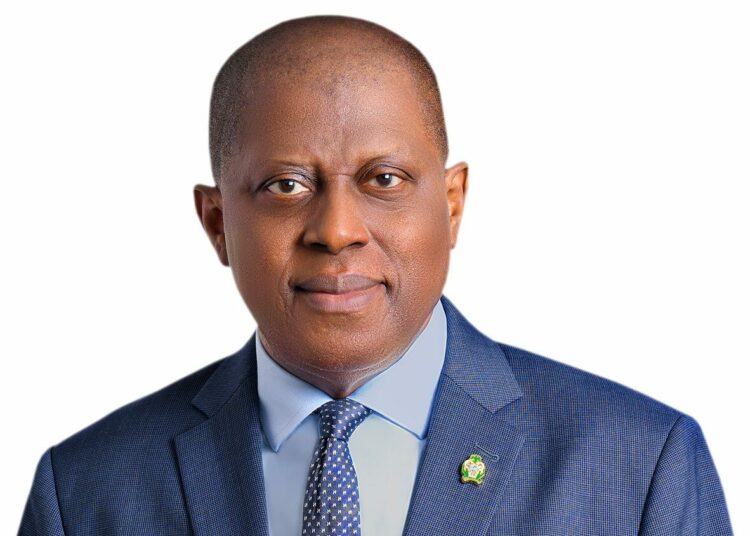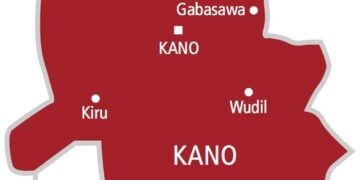The Governor of the Central Bank of Nigeria (CBN), Olayemi Cardoso, has projected that Nigeria’s trade surplus will reach about six per cent of the nation’s Gross Domestic Product (GDP), buoyed by recent economic reforms that have made the naira more competitive and encouraged local production.
This is as he revealed that the apex bank was working on developing a framework on settling bilateral trade in local currencies.
Speaking at the G-24 press briefing on the sidelines of the IMF/World Bank Annual Meetings in Washington, Cardoso who stood in for the Finance Minster, Wale Edun, who is the first Vice Chair of the G24, noted that Nigeira had been shielded from the global uncertainties.
Cardoso, while discussing the impact of the uncertainties generating from trade wars at the global scene, said: “from Nigeria’s perspective, it was less of a problem for us. I think we were very fortunate because a lot of the things that were needed to have been done, we did them much earlier. As a result, we were able to create resilience and buffers against potential shocks.
“In terms of anchoring expectations, we found that those who followed the Nigerian economy were fairly comfortable. For us, again, oil is basically the only commodity that was so exposed, and the impact on that was relatively modest.
“Now, we have a more competitive currency, and as a result, for once, we have a situation where we have a positive balance of trade, a trade surplus, and we expect it to be around six per cent of GDP and remain in that range for some time. Basically, what is happening is a complete restructuring of the economy, with a competitive currency encouraging people to go into domestic production and, of course, discouraging inputs.”
On settling bilateral trade in national currencies, the CBN governor noted that having tried it in the past “it didn’t work out very well for us. That’s not to say that we are not interested in doing this. We are, and we are really at an elementary stage of putting it, is putting up a framework now that our currency is more competitive, to be able to ensure that it’s a win-win for everybody.”
Also commenting on G24 stance on advancing its members interest, he added: “t’s clear to me that under the leadership of Argentina, the chair of the G-24, we’ve certainly advanced the course with the voice of the emerging economies and been able to get a greater, a more effective seat at the table, especially with respect to the Bretton Woods institutions and getting our voices heard. And I think that, in itself, is a major, major, major step forward. So of course, my expectation is that the very, very good work that has been done will be further deepened in the years ahead.”





